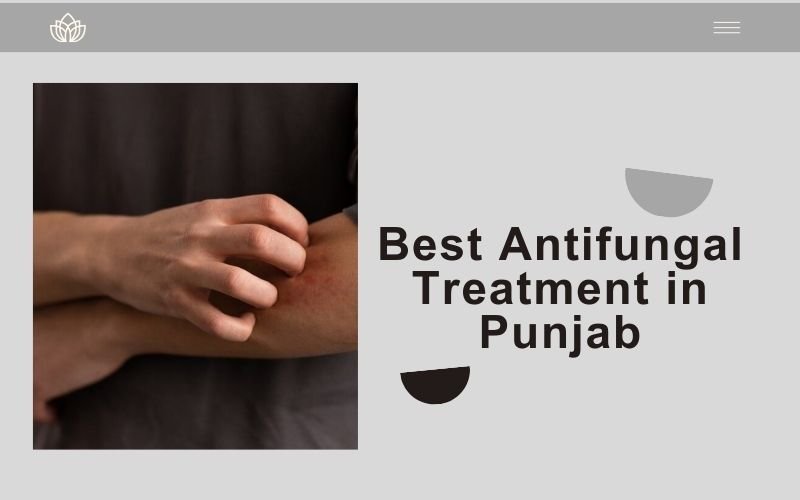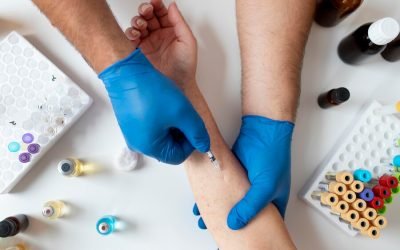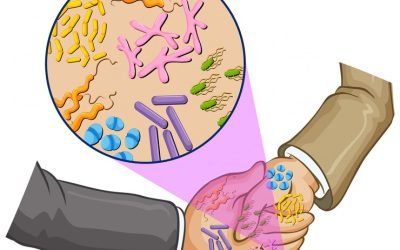Premier Antifungal Treatment in Punjab: Advanced Solutions for Lasting Relief

book your appointment

Introduction of Best Antifungal Treatment
Find the Best Antifungal Treatment in Punjab offered by Dr. Parwaaz Matharoo. Fungal infections can affect anyone, causing discomfort and potential health complications. This comprehensive guide delves into the causes, symptoms, and advanced treatment options available at The House of Skin.
Understanding Fungal Infections
Fungal infections are common skin conditions caused by various types of fungi. They can affect different parts of the body, including the skin, nails, and hair. Common fungal infections include:
- Athlete’s Foot (Tinea Pedis): Affects the feet, causing itching, redness, and peeling.
- Ringworm (Tinea Corporis): Appears as a red, circular rash with clearer skin in the middle.
- Jock Itch (Tinea Cruris): Occurs in the groin area, leading to a red, itchy rash.
- Nail Fungus (Onychomycosis): Causes thick, discolored nails that can become brittle.

What Causes Fungal Infections?
Fungal infections are caused by various fungi that thrive in warm, moist environments. These infections can be spread through direct contact with an infected person or animal, or by touching contaminated surfaces.Elements that elevate the likelihood of fungal infections encompass:
- Humidity and Heat: High temperatures and moisture levels provide ideal conditions for fungal growth.
- Poor Hygiene: Lack of proper hygiene can lead to fungal infections.
- Compromised Immune System: People with compromised immune defenses are more prone to fungal infections.
- Tight Clothing: Wearing tight or non-breathable clothing can create a conducive environment for fungi.
Causes and Risk Factors
Causes of Fungal Infections:
- Fungi Exposure: Direct contact with fungi in the environment, such as soil, plants, or contaminated surfaces.
- Weakened Immune System: Conditions like HIV/AIDS, cancer, diabetes, or taking immunosuppressive medications can increase susceptibility.
- Moist and Warm Environments: Fungi thrive in moist and warm areas of the body, such as between toes or in skin folds.
Who is at Risk?
- Individuals with Chronic Conditions: Those with chronic illnesses like diabetes.
- Immunocompromised Patients: Patients undergoing chemotherapy, organ transplant recipients, and those with HIV/AIDS.
- Athletes: Due to increased sweating and use of communal facilities.
- Elderly and Infants: Weaker immune systems make them more susceptible.
How Fungal Infections Spread:
- Direct Contact: Touching infected skin or surfaces.
- Indirect Contact: Sharing personal items like towels, shoes, or razors.
- Airborne Spores: Inhalation of fungal spores from the environment.
Symptoms and Diagnosis
Fungal infections can present with various symptoms, including:
- Redness and inflammation
- Itching and discomfort
- Scaling and peeling
- Blisters or pustules
- Discolored or thickened nails

Diagnosis and Testing
How are Fungal Infections Diagnosed?
- Physical Examination: Initial visual inspection of the affected area by a healthcare provider.
- Medical History: Discussion of symptoms, duration, and any potential exposure to fungi.
Common Diagnostic Tests:
- Skin Scrapings: Collecting a sample of the infected skin for microscopic examination or culture.
- Blood Tests: To identify systemic fungal infections.
- Biopsy: Removing a small piece of tissue for detailed examination if the infection is deep or persistent.
Importance of Early Detection:
- Preventing Spread: Early diagnosis can prevent the infection from spreading to other parts of the body or to other people.
- Effective Treatment: Initiating treatment early can lead to quicker recovery and reduce the risk of complications.
- Reducing Recurrence: Proper diagnosis helps in selecting the right treatment to prevent recurrence.
Proper diagnosis is crucial for effective treatment. Dr. Parwaaz Matharoo conducts thorough examinations and may perform skin scrapings or nail clippings to identify the type of fungus responsible for the infection.
Advanced Treatment Options
At The House of Skin, we provide a comprehensive range of antifungal treatments tailored to your specific needs. Our approach combines the latest medical advancements with personalized care to ensure optimal results, making us the destination for the Best Antifungal Treatment in Punjab
Topical Antifungal Medications
Topical treatments are commonly used for mild to moderate fungal infections. These medications are applied directly to the affected area and include:
- Creams and Ointments: Effective for treating skin infections.
- Medicated Shampoos: Used for scalp infections.
- Nail Lacquers: Designed to treat nail fungus.
Oral Antifungal Medications
For more serious or extensive infections, doctors may prescribe oral antifungal medications.
These include:
- Terbinafine: Commonly used for nail fungus and other skin infections.
- Itraconazole: Effective for a variety of fungal infections.
- Fluconazole: Often used for yeast infections and other fungal conditions.
Laser Treatment
Laser therapy is a modern, non-invasive option for treating stubborn fungal infections, particularly nail fungus. This method targets the fungus without damaging the surrounding tissue, promoting faster and more effective healing. For those seeking the Best Antifungal Treatment in Punjab, laser therapy offers a cutting-edge solution
Why Choose The House of Skin?

Expertise and Experience
Personalized Care
We understand that each patient is unique. Our treatment plans are customized to address your specific condition and lifestyle, ensuring the best possible outcomes.
State-of-the-Art Facility
Our clinic is equipped with the latest technology and medical equipment, providing a comfortable and advanced setting for your treatment.
Patient Education
We are committed to empowering our patients through education. Dr. Matharoo takes the time to educate you about your condition and the treatment options available, helping you make informed decisions about your health.
Preventing Fungal Infections
Prevention is key to maintaining healthy skin and avoiding recurrent infections. Here are a few guidelines to help you avoid fungal infections:
Keep your skin clean and dry: Moisture promotes fungal growth
Explanation: Fungi thrive in moist environments. By keeping your skin clean and dry, you reduce the conditions that allow fungi to grow and spread. Regular bathing and thorough drying, especially in areas prone to moisture such as between toes and skin folds, can help prevent fungal infections.
Wear breathable fabrics: Opt for cotton and moisture-wicking
Explanation: Breathable fabrics like cotton and moisture-wicking materials help to keep your skin dry by allowing air to circulate and drawing moisture away from your skin. This reduces the dampness that can lead to fungal growth, especially in warm, humid environments.
Avoid sharing personal items: Towels, shoes, and nail clippers
Explanation: Fungal infections can spread through direct contact with infected items. Sharing personal items like towels, shoes, and nail clippers increases the risk of transmitting fungi from one person to another. Using your own personal items helps prevent the spread of fungal infections.
Use antifungal powders: These can help keep your feet dry
Explanation: Antifungal powders contain ingredients that help to absorb moisture and create an environment that is hostile to fungal growth. Applying these powders to your feet can help keep them dry and prevent common fungal infections like athlete’s foot.
Maintain good hygiene: Regular handwashing
Explanation: Good hygiene practices, such as regular handwashing and proper nail care, are crucial for preventing the spread of fungal infections. Clean hands reduce the risk of transferring fungi to other parts of your body or to other people. Proper nail care, including keeping nails trimmed and clean, helps prevent fungal infections in and around the nails.

Expert Opinions and Data
Research indicates that about 20% of the population suffers from fungal infections at any given time. According to the World Health Organization (WHO), proper hygiene and early treatment can significantly reduce the incidence of these infections.
Dr. Parwaaz Matharoo emphasizes the importance of early diagnosis and proper treatment in effectively managing fungal infections. He advises patients to seek medical attention at the first appearance of symptoms to avoid complications. With his expertise, you can receive the Best Antifungal Treatment in Punjab for optimal results
Contact Us
Frequently Asked Questions (FAQ)
Common symptoms of fungal infections include redness, itching, scaling, peeling, blisters, and discolored or thickened nails.If you notice any of these symptoms, it is crucial to consult a medical professional for accurate diagnosis and appropriate treatment.
Fungal infections are diagnosed through physical examination and, in some cases, laboratory tests such as skin scrapings or nail clippings. These samples are analyzed to identify the type of fungus causing the infection, which helps in determining the most effective treatment.
Treatment options for fungal infections include topical antifungal medications (creams, ointments, medicated shampoos, nail lacquers), oral antifungal medications (terbinafine, itraconazole, fluconazole), and laser therapy for nail fungus. The choice of treatment depends on the type and severity of the infection.
The time required to see results from antifungal treatment varies depending on the type and severity of the infection, as well as the treatment method used. Topical treatments may take a few weeks, while oral medications and laser therapy might show results within a few months. It is important to follow your doctor’s instructions and complete the full course of treatment to ensure the infection is fully eradicated.
Yes, fungal infections can recur, especially if preventive measures are not followed. To reduce the risk of recurrence, maintain good hygiene, keep your skin dry, wear breathable fabrics, avoid sharing personal items, and use antifungal powders as recommended.
Laser treatment for nail fungus is considered safe and effective. It targets the fungus without damaging the surrounding tissue, promoting faster healing. However, it is important to consult with a qualified dermatologist like Dr. Parwaaz Matharoo to determine if laser treatment is suitable for your condition.
Get Consultation With Our Experts
Schedule a consultation today and embark on a journey towards informed decision-making and success. Your challenges, our expertise – let’s collaborate for a brighter future.

